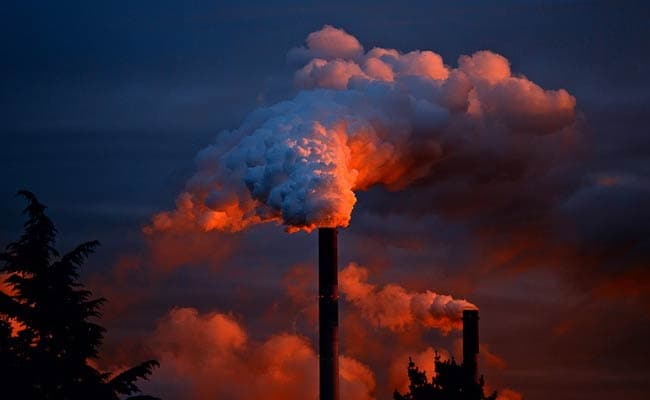
Plans by oil and gas majors to spend $4.9 trillion on fuel exploration are "poles apart" from the goal of the Paris climate deal to limit the global temperature rise, a new analysis showed Tuesday.
As greenhouse gas emissions continue to climb annually, a string of warnings from the world's top climate scientists have questioned mankind's ability to prevent the worst effects of global warming while sticking with an economy geared around fossil fuels.
In October, the UN's climate change panel (IPCC) issued a landmark report saying that a 1.5 Celsius target laid out in the Paris accord could only be hit with near-immediate and drastic cuts in production and consumption of oil, gas and coal.
Yet oil and gas giants plan to invest trillions of dollars in exploring and developing new fields in the coming decades.
This, according to a report by pressure group Global Witness, would confine the Paris goals to the dustbin.
"The oil and gas majors' current investment plans are nowhere near to being compatible with 1.5C, they are completely poles apart from what is needed," Murray Worthy, who authored the report for the watchdog, told AFP.
Global oil output is set to grow by 12 percent by 2030 -- the year by which the UN says greenhouse gas emissions must be slashed by almost half to have a coin's toss chance of staying within the 1.5C limit.
Global Witness used investment forecasts from market analysts and fuel companies and compared them with the science laid out in the UN report.
Like the IPCC, it did not factor in any major role for carbon capture and storage (CCS) technologies, which oil and gas producers claim will allow them to continue burning fossil fuels so long as emissions can be sucked out of the atmosphere.
"Once you take those out, you are left with needing a 40 percent reduction in oil by 2030," said Worthy.
Climate models 'push plausibility'
Many oil and gas business models feature heavy doses of CCS, which is untested on a global scale.
Some scenarios even rely on nearly as much CO2 being sucked from the atmosphere this century as has been emitted worldwide since the Industrial Revolution took off 150 years ago.
Global Witness said such models "push the boundaries of plausibility and do not serve as a credible guide to alignment with the Paris goals."
Investment in exploration has flatlined across the industry following years of low oil prices. But it is set to soar 85 percent over the next decade, reaching $1 trillion annually by 2029.
"It's hard to overestimate how vast the problem is that we are currently facing," said Worthy.
"The fossil fuel industry plans are completely incompatible with a long-term climate that is safe and habitable."
According to analysts at Rystad Energy, ExxonMobil plans to invest $149 billion in new oil fields over the next 10 years.
ExxonMobil did not respond to a request for comment from AFP, but a spokeswoman for Shell -- which is forecast to invest $106 billion on new oil and $43 billion on new gas fields -- said action was "needed now" on climate change.
"We fully support the Paris Agreement and the need for society to transition to a lower-carbon future," the spokeswoman said. "Oil and gas will be needed right through the energy transition."
A spokesman for Chevron, which is predicted to spend $78 billion on new oil fields by 2029, told AFP it was "taking prudent cost-effective actions to address potential climate change risks to our business and investing in technology and low carbon business opportunities that could reduce greenhouse gas emissions."
(This story has not been edited by NDTV staff and is auto-generated from a syndicated feed.)Track Latest News Live on NDTV.com and get news updates from India and around the world

